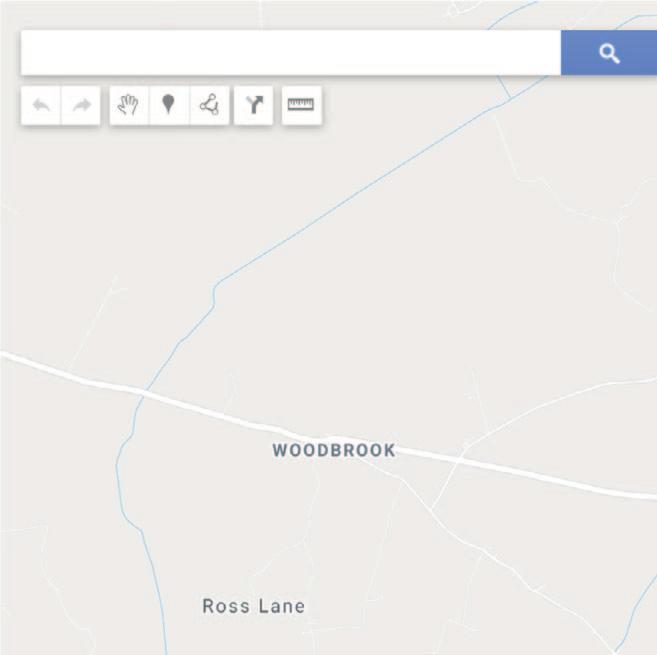
5 minute read
n Change is coming
CHANGE IS COMING
PEOPLE AROUND THE WORLD ARE TURNING TO THE COURTS FOR URGENT ACTION ON CLIMATE CHANGE, AND THE IMPACT OF THIS WILL BE FELT IN THE PROPERTY MARKET.
n her address to the United Nations Climate Action Summit in New York in September 2019, Greta Thunberg closed with the words: “Change is coming whether you like it or not”. The climate change movement has gained significant momentum over the last year, and more and more affected individuals and organisations are going to court to seek climate change justice. I
Suing the state The first case of this kind in the world was filed in 2013, in
the Netherlands. 1 The Urgenda Foundation, a Dutch
environmental group, sued the Dutch Government for the failure of the Dutch State to take sufficient actions to prevent dangerous climate change. At the time, the Netherlands was one of the most polluting countries in
the European Union. In 2018 the Dutch Court of Appeal accepted that the “real threat of dangerous climate change” results in “the serious risk that the current generation of citizens will be confronted with loss of life and/or a disruption of family life”. Obligations under the European Convention on Human Rights led the Court to conclude that “the State has a duty to protect against this real threat”, and ruled that the Dutch State must reduce greenhouse gas emissions by at least 25% by the end of 2020 compared to 1990 levels.
Barra McCabe BL Barrister-at-law and former sur veyor FEATURE
The decision was affirmed by the Dutch Supreme Court on December 20, 2019. The Urgenda case was recognised as the world’s first climate liability lawsuit, and set a precedent that has since inspired other legal actions around the world. Irish case In Ireland, the NGO Friends of the Irish Environment wanted more ambitious action on climate change and sued the State. It argued that the Government’s approval of Ireland’s National Mitigation Plan (NMP) is unconstitutional and in breach of human rights obligations, and that it does not meet the requirements of the Climate Action and Low Carbon Development Act 2015. While Friends of the Irish Environment were unsuccessful in the High Court in January 2019, their appeal has been leapfrogged to the Supreme Court and is due to be heard on June 22, 2020. The impact of this renewed focus on climate change is starting to trickle into the property market, and given the momentum the climate change movement is gaining, we should expect multiple changes in the property market. The Climate Action Plan (CAP) published by the Government in June 2019 and the National Planning Framework adopted in May 2018 focus on the formulation of suitable planning policy to respond to the requirement to reduce greenhouse gas emissions. An Bord Pleanála (ABP) has signalled that it is increasingly prepared to examine projects capable of having a direct or indirect effect on greenhouse gas emissions through the lens of what is required to achieve Ireland’s overall climate action targets, and to refuse planning permission for developments utilising technologies seen as “ GIVEN THE MOMENTUM THE CLIMATE CHANGE MOVEMENT IS GAINING, WE SHOULD EXPECT MULTIPLE CHANGES IN THE PROPERTY MARKET.
harmful for the climate. 2 In December 2016, ABP gave an extension of duration of
planning permission to Bord na Móna to continue co-firing of biomass with peat at its power plant at Edenderry, Co. Offaly, until 2023. ABP concluded, having considered the Government’s climate change polices in effect at that time, that the proposal for the co-firing of biomass with peat was in accordance with “proper planning and sustainable
development”. In 2019, ABP came to a different conclusion concerning a very similar proposal to extend the duration of planning permission for the co-firing of peat with biomass at the ESB-owned West Offaly Power Station at Shannonbridge, Co. Offaly. ABP concluded that, having regard to national, EU and international climate change mitigation obligations, the proposed development ran contrary to “proper planning and
sustainable development”. This was due to the fact that the biomass would be largely
imported and transported to the midlands by heavy goods vehicle (HGV) from ports.
ABP also concluded that the continued firing of peat for electricity production was no
longer acceptable in planning policy terms due to the higher emissions profile of this
energy source. 3
Right to light
A further example of planning policy change relates to an expansion of what benefits
from a right to light. In 2019, in the English case of R v Medway Council and Another, 4
the claimant was granted planning permission to install solar panels on the south
facing wall of his residential property in October 2017. Judicial review proceedings were brought against a planning permission granted in respect of a neighbouring residential extension, on the grounds that the extension would overshadow the claimant’s solar panels. In granting the planning permission, the local authority took the view that the extension was “in keeping with the local area”, and that the effect on daylight to the
claimant’s solar panels was not a material consideration but rather a “purely private

interest of the claimants that did not require protection in the public interest”. The court
held that the local authority cannot reject as immaterial the effect of a development
proposal on a renewable energy system, and that such rejection was “irrational”. 5 The
courts came to this determination as a result of s.38(6) of the English Planning and
Compulsory Purchase Act 2004, which requires that “any determination of a planning application must be made in accordance with the development plan”, as further enhanced by s.19(1A), which further requires that development plans must include policies that contribute to the mitigation of, and adaption to, climate change. It was the court’s view that this applied regardless of the scale of the “renewable energy system”, and as a result the grant of the planning permission was quashed.
Time will tell how developing climate change law will fully impact the property market, but one thing is for sure, change isn’t just coming...change is here.
References 1. Urgenda Foundation (on behalf of 886 individuals) v The State of the Netherlands (Ministry of Infrastructure and the Environment), first instance decision, HA ZA 13- 1396, C/09/456689. 2. Nagle, D., Brady, E. Planning & environment: An Bord Pleanála takes up the mantle of climate action. Mason Hayes & Curran, Lexology, February 3, 2020. 3. Ibid. 4. [2019] All ER (D) 67 (Jul). 5. Newnham, D., Napley, K. Climate change and the property market. Lexology, September 27, 2019.









